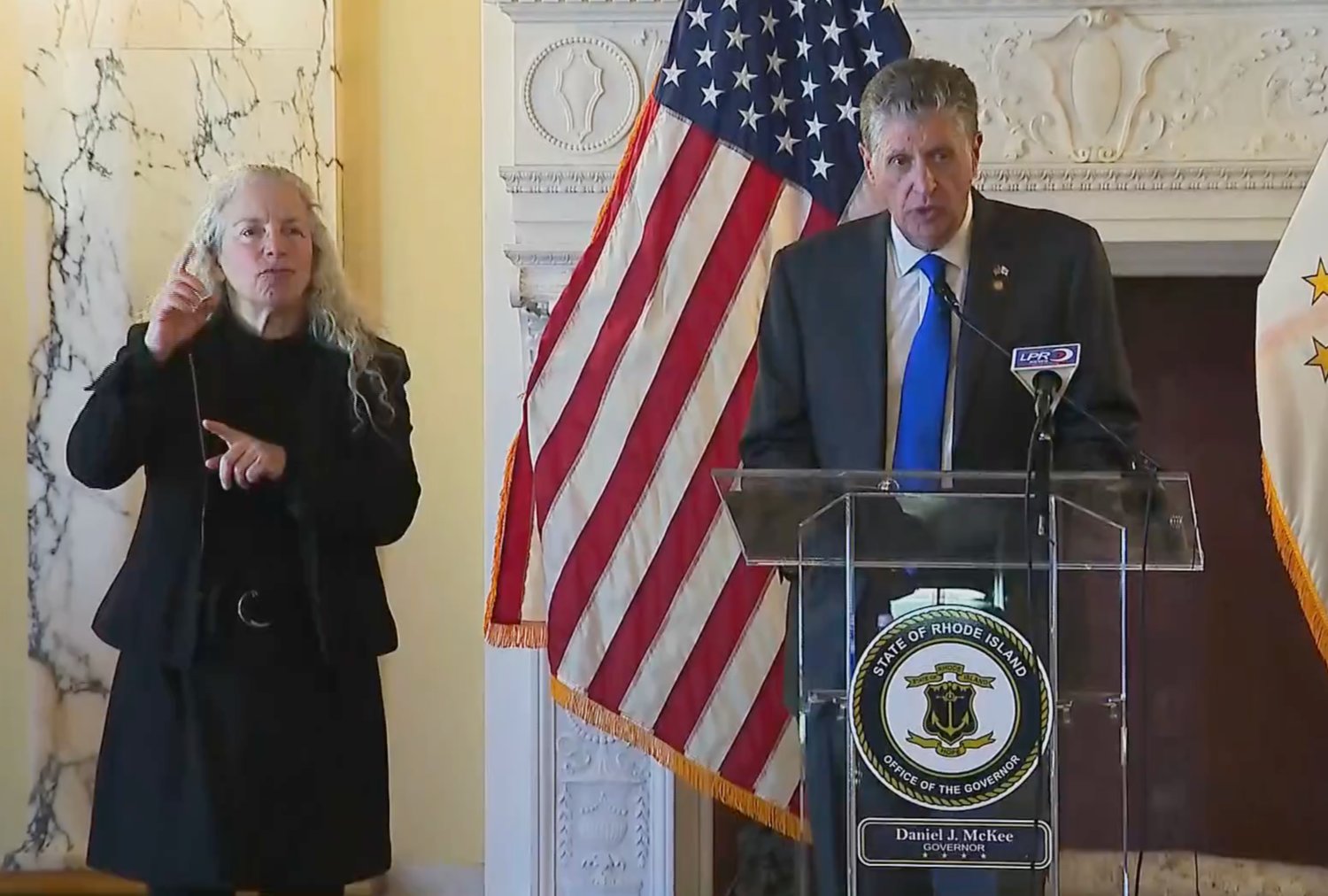School mask mandate to be lifted on March 4
After that, local districts will make their own decisions
Public school students in Rhode Island must continue to wear masks indoors until March 4, Gov. Daniel McKee said in his COVID-19 briefing today, Feb. 9.
This item is available in full to subscribers.
Please log in to continue |
Register to post eventsIf you'd like to post an event to our calendar, you can create a free account by clicking here. Note that free accounts do not have access to our subscriber-only content. |
Day pass subscribers
Are you a day pass subscriber who needs to log in? Click here to continue.
School mask mandate to be lifted on March 4
After that, local districts will make their own decisions
Public school students in Rhode Island must continue to wear masks indoors until March 4, Gov. Daniel McKee said in his COVID-19 briefing today, Feb. 9.
After March 4, decisions about masking in schools will be shifted to the individual local districts, McKee said.
The statewide executive order on indoor masking in other public settings will be lifted Friday, Feb. 11. The governor’s order empowers schools, businesses, and venues of assembly to implement the health and safety measures best suited to the needs of their communities.
“Based on our decreasing case and hospitalization numbers, our team at the Department of Health feels confident in our plan to safely shift masking guidance for both schools and public settings as we move into an endemic management phase of the virus,” the governor said.
Since peaking at approximately 6,700 cases a day in early January, Rhode Island’s case numbers have decreased by more than 94 percent, Gov. McKee said, adding the state currently has the eighth-lowest positivity rate in the country.
Since peaking at 598 hospitalizations in mid-January, Rhode Island’s number of hospitalized COVID-19 patients has decreased by approximately 52 percent, he said. (Hospitalization trends tend to lag behind case trends.)
During the week of January 2, there were 9,931 K-12 cases in Rhode Island, compared to 1,547 K-12 cases the week of Jan. 30.
“We’ve made considerable progress against COVID-19 and the recent surge, and we are in a much better place than we were in early January,” he said.
Why March 4?
When asked why the March 4 date was chosen for schools, McKee said state officials felt it made sense to go a full week after the winter break “to make sure we’re in good shape.”
McKee said he understands that many parents are angry about masks mandates in schools and say they’re exhausting for students and hurt their emotional wellbeing.
“There’s a difference of opinion … but in the end we make decisions based on good data,” said McKee, adding that he believes many parents will choose to keep their children masked after March 4.
Interim Director of Health James McDonald said Rhode Island is in a much better place now than it was two years ago. “Now we’re dealing with a preventable, treatable disease” which is still a pandemic, but is quickly transforming into an endemic disease.
Regardless of the mask mandate, unvaccinated people or those with underlying health conditions should still wear masks, said McDonald, who urged members of the public to be kind and not judge others who choose to continue to mask up.
“If someone is wearing a mask, just move on. It’s none of our business,” he said.
Overview of updates
Here’s an overview of the updates provided by the state:
Businesses and venues of assembly — On Friday, Feb. 11, the Executive Order that requires masking or proof of vaccination status (depending on the venue size) will expire. At that point, businesses and venues will have the ability to create their own masking and vaccination policies.
Schools — Pending the approval of a joint resolution to extend the Governor’s emergency authority for 45 days, the Governor will extend the Executive Order that requires indoor masking in public K-12 schools to March 4. At that point, cities, towns, and school committees will be able to implement their own masking policies using updated recommendations that RIDOH and RIDE will provide. This updated approach brings masking in line with other mitigation measures that schools implement based on recommendations from RIDOH and RIDE, such as testing, social distancing, and symptom screening.
Given the complexities of developing and implementing new COVID-19 policies in schools, the current masking requirement for schools will remain in effect for three weeks longer than the requirement for businesses and venues of assembly. During these three additional weeks, school leaders will be able to develop masking policies after reviewing the updated recommendations from RIDOH and RIDE and after gathering input from families. This will also give families additional time to get their children vaccinated.
Following these shifts, students, teachers, and school staff and people in businesses and venues of assembly will still have the option to wear masks. Additionally, masks will still be required for people in public transportation stations and while on public transportation, including school buses. (These are federal requirements.)






